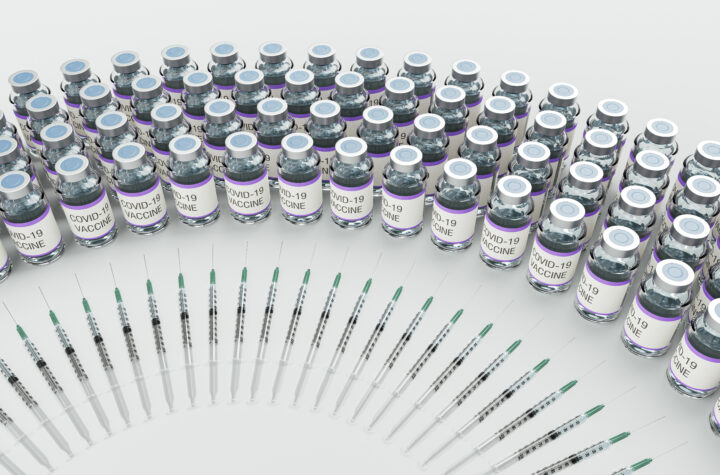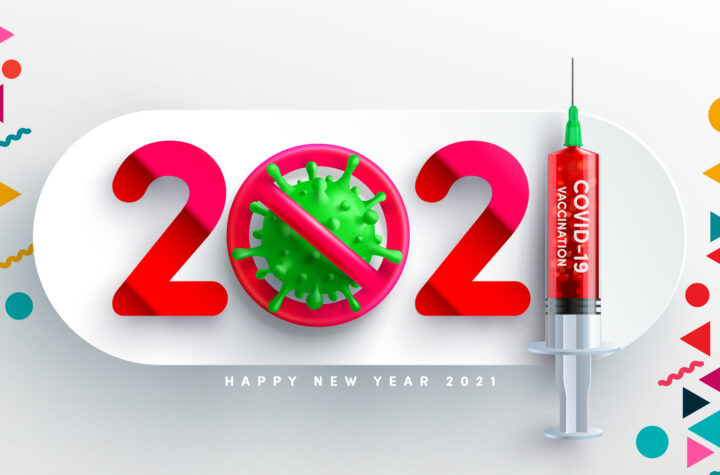Everyone will be happy to put the year 2020 in the rearview mirror. The Coronavirus Pandemic has not been fun for anybody; for many the pandemic has led to tragedy.
However, with new vaccines and treatments rapidly emerging, it looks like we will have the virus cornered in 2021. 2021 will be time for America’s big comeback, and biotech is ready to play a star role. In fact, biotech stocks have already been sizzling in anticipation of a much healthier 2021. $XBI, an exchange traded fund which represents a broad basket of biotech stocks, is already up a whopping 33.4% for the year 2020, beating the overall stock market by 18%.
Many analysts believe that the good times will continue to roll into 2021. In fact, for many biotech investors today, the biggest challenge may be the search for value. How to find promising biotech names that have not already become wildly overvalued in the current bull market?
Below we explore three biotech stocks with solid fundamentals and likely long term growth ahead. 2021 could just be the year for the “terrific trio” presented below.
$MESO: To Covid and Beyond!
Mesoblast Limited is an Australian firm, listed on the Nasdaq stock exchange under the ticker symbol $MESO, that is a great example of a “Covid +” stock. They have been in the news due to a promising novel treatment for Covid, but they have a broad pipeline loaded with other therapeutic possibilities even if the Covid treatment doesn’t work out. They are heading into 2021 with some serious momentum, having just signed a potentially lucrative partnership with a Big Pharma firm that can deliver the goods. Literally.
For the C-Suite of Mesoblast, “Inflammation” is the name of the game. The company has pioneered and patented a way to produce cell based therapies that help reduce inflammation. This inflammation is thought to be a key element of many common pathologies across a range of diverse disease states.
One such disease state is Covid-19. As Covid burst upon the scene, many intensive care physicians noted that inflammation was related to the most sick, most endangered Covid patients. Mesoblast immediately began to test their engineered cells on very ill victims of the pandemic. The scientific world suddenly noticed the formerly obscure company when 9 of 12 ventilated patients improved dramatically after being given Mesoblast’s treatment on a compassionate use basis. $MESO immediately moved to confirm these results with a much larger, phase III trial. Results are pending.
But $MESO’s 2020 setbacks have been just as dramatic as their victories. Within weeks of the hopeful Covid announcement, the company faced a frustrating setback with it’s lead product, Remestemcel-L. Even though an FDA advisory committee had voted 9 to 1 to approve the new agent for pediatric graft versus host disease, the FDA demanded that $MESO conduct at least one more study prior to approval. As these studies are time consuming and expensive, the share price dropped sharply.
While some shareholders’ faith may have wavered on this setback, $MESO did succeed at finding one big believer: Novartis ($NVS). The Swiss pharmaceutical giant has just signed a broad and deep partnership with Mesoblast to develop and market it’s cell based anti-inflammation technologies.
This partnership is a big deal for a few reasons. First, it’s a huge vote of confidence from one of the most experienced Big Pharma operations in the world. Second, it will help Mesoblast roll out any Covid treatment quickly if the current, ongoing phase III trial is a success. Novartis has a specialization in cell based treatments; manufacturing and distribution of human cell based treatments is not simple; having a big partner with established infrastructure will greatly amplify the reach of Meso’s innovations.
In addition to treatments for Covid and graft vs host disease, Mesoblast has a pipeline stocked with potential new treatments for common, hard to treat ailments. Treatments for back pain, heart failure, and Crohn’s Disease are all in phase II or III testing. If even one of these treatments scores, it could mean $1 billion annually in revenue for $MESO. With a current market capitalization of just $1.8 billion, the risk of ownership seems well worth the reward.
$EXAS: Growing Faster than Cancer
Exact Sciences Corporation is famous for being the company that turned poop into gold. The company’s flagship product, the Cologuard Colorectal Screening Test has been used more than two million times by Americans who were reluctant to invest the time or discomfort to get a colonoscopy. Anyone who is a fan of the Black Panther character from Marvel Comics is keenly aware of the need for early colon cancer screening in America. Beloved actor Chadwick Boseman (“The Black Panther”) became a victim of colon cancer, passing away at the age of just 43.
It would have been easy for $EXAS management to rest on their laurels and enjoy the continuing growth of the Cologuard test. As many as 20 million Americans still ignore CDC recommendations and get no colon cancer screening, meaning that the Cologuard still offers robust growth potential. However, Exact’s management has decided to take a more aggressive route; through acquisitions, the company is rapidly becoming an all round cancer testing powerhouse.
In 2019 Exact bought Genomic Health, acquiring a suite of cancer based genetic tests. Included in the purchase was the OncoType Dx test. This is the only test that has been proven to predict which breast cancer patients will benefit from chemotherapy, and which patients need not go through the ordeal of such aggressive treatment.
Less than a year later, Exact has whipped out the credit card again, and purchased Thrive Diagnostics, a company developing a “pan-cancer” blood test for cancer. The idea is that a simple blood test, given at your yearly physical, will be able to detect early stage cancers long before any symptoms appear. Rafts of academic data demonstrate that early detection should lead to better treatment outcomes.
Exact was motivated to pay $2 billion for the new test based on some exciting data that was recently published. The DETECT-A study used the new CancerSeek test on 10,000 women, revealing an astonishing 10 different kinds of cancer in the women, many of whom seemed perfectly healthy. Most important, 7 of the 10 cancer types detected currently have no screening guidelines, meaning they would not have been uncovered until the patients were symptomatic, which is often too late. One example of this kind of cancer is pancreatic cancer. Because the pancreas is buried so deep in the body, pancreatic cancer is almost always a death sentence upon diagnosis. Up until now there has just been no way to screen for earlier detection. Exact Sciences aims to change that gruesome prognosis.
The union of Thrive and Exact could be a marriage made in heaven. Exact already has a robust sales force with a firm grasp on primary care practices throughout the United States. Exact already has a strong commercialization team that knows how to negotiate with insurers in the cancer screening market. The integration potential of the two could be dynamite.
But can $EXAS afford the purchase? This is the firm’s second large purchase in just two years. $2,000,000,000 is a lot of money to pay, given that Exact has never turned a profit and had negative cash flow of $115 million in 2019. Additionally, the initial purchase price may be just the first investment in the CancerSeek test. Errors with such a high stakes test cost lives. Exact may well have to invest in more studies before the new test can be sold. Empire building in the cancer sector is not cheap or easy.
Is it worth it? A little basic arithmetic clears the mind quickly. The CancerSeek test is envisioned as a routine screening test that would become part of every physical for Americans over a certain age. The United States currently has 108 million citizens over 50 years of age. If 20% of those got a physical every year, and Exact could charge an insurance company $250 for the test, that would equal $5 Billion in revenue every year. Exact’s revenue for 2019, without CancerSeek, was less than $1 Billion. So this one acquisition could easily quintuple Exact’s revenue if they can turn the vision into reality.
Investors who choose to buy into Exact Sciences have decided that a big risk is well worth an even bigger reward.
$CSBR: A Champion of Big Data?
Another company growing a cancer empire is Champions Oncology Inc. This is a small company with big goals. Champions does not sell cancer drugs, but rather sells services that help other biotech companies pioneer novel cancer treatments. Rather than mining for gold, Champions sells all of the equipment that miners would need to search for gold in the 21st century “biotech goldrush.”
$CSBR offers a wide range of tools to oncology companies looking for cancer cures. But there are two services, in particular, that could make a huge difference in 2021.
First, champions is a leader in the utilization of “humanized mice” in the study of cancer. Sounds a bit creepy? It is. Humanized mice are rodents who have had their DNA altered in specific ways to make them more like human beings. This allows cancer companies to try out new agents in a biological environment very close to the human body, without going through the extreme expense and effort of mounting a study in actual humans. Champions offers dozens of different kinds of mice, humanized to represent very specific disease states.
In general, this technology represents a big advance for cancer research, because it can shave valuable time and money off of the arduous oncology development process. Additionally, this whole approach has just received a huge PR boost in the scientific community. Regeneron, yes, THAT Regeneron, the company that seems to have cured President Trump of Covid, pioneered their anti-Covid medicine using humanized mice. This has taken a scientific revolution that was quietly happening in unremarkable labs around America and placed it front and center in the public imagination. The results can only be favorable for Champions.
You may have noticed that many of the biggest, most lucrative names in business today don’t sell physical products at all. Names like Facebook, Google and Microsoft sell services that can be scaled at a mind boggling pace. This means that Google only has to create a software program one time; the investment is mostly a fixed one time cost. They can then sell that service millions and millions of times, bringing in almost unlimited revenue, all off the same fixed cost base. That is how you become one of the most profitable and highly valued stocks in the world.
The management of Champions got the memo. They have just launched their own oncology oriented software program based on the thousands and thousands of tests that have already come out of their lab. After all, humanized mice may mimic humans, but are not humans; the mice don’t have HIPPA privacy rights. Simply put, Champions is just now monetizing the vast quantities of data that has already been collected from years of hosting a broad range of cancer research. This software has been dubbed Lumin.
If Lumin takes off, it could be a game changer for shareholders. The S&P 500, a broad range of different kinds of stocks representing the breadth of the American economy, trades at an average price to earnings ratio of about 26. Software stocks like Nvidia actually trade at stratospheric valuations like 86 times earnings. Simply put, Wall Street has fallen deeply in love with the “scale” phenomena that tech companies can offer. If Champions can rapidly grow revenue from the new Lumin software platform, they just might convince Wall Street that they, too, are a tech company. Huge valuations could follow.
Champions Oncology is a microstock with jumbo potential. If management plays the game just right, 2021 could be their year.
After enduring a dark and stormy 2020, it’s hard not to feel optimistic about 2021. With luck, the three companies above should fulfill that optimism. Leaders in healthcare should continue to deliver healthy profits for investors.
DISCLOSURE: The Sick Economist owns shares in each of the three companies profiled in this post.








1 thought on “3 BLAZING HOT BIOTECH STOCKS FOR 2021”
Comments are closed.